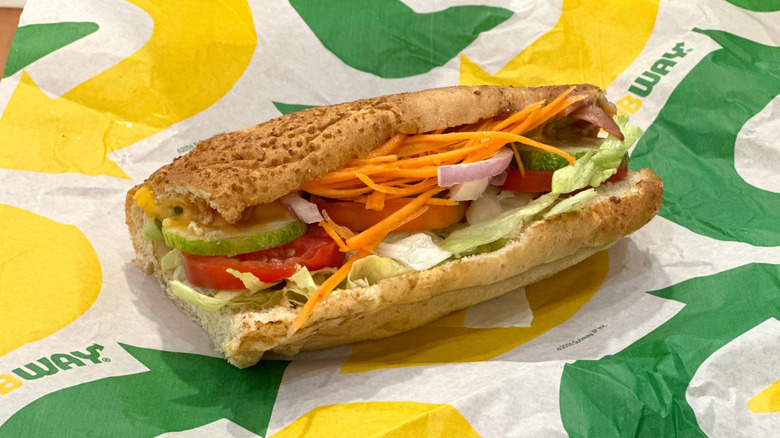New Lawsuit Claims Subway's Sandwiches Don't Have Enough Meat
New Yorkers want you to tell it like it is, so when Subway's Steak & Cheese sandwich had far less meat in the actual sandwich than what was shown in the ads, New Yorker Anna Tollison took them to court for "grossly misleading" customers. The Queens resident says she paid $7.61 for a sandwich not realizing the sandwich is, in fact, more bread than meat. She claims the ads portray a sandwich with 200% more meat than the way the chain actually makes it. While the ad shows meat piled up to the height of the bread around the sandwich, what is served to the customer is far less satisfying.
The lawsuit claims Subway broke New York State's consumer protection laws and seeks damages for New Yorkers who ate the sandwich in the last three years. Tollsin feels the ads are unjust as inflation and rising food costs are affecting lower-income groups. So, while we feel Subway's meats leave a lot to be desired, is it lying to the consumer to show more meat in ads than in reality?
Similar lawsuits from the same firm point to a potential verdict
Subway had a similar case about the actual length of their foot-long sandwiches dismissed in 2017 in a Chicago court, after a photo stating their footlongs were actually 11 inches went viral in 2013. New York State's consumer protection laws have been used by the same firm filing the complaint against Subway in suits against Wendy's, McDonald's, and Taco Bell last year. In suits against McDonald's and Wendy's, the firm claimed the burgers in their ads were 25% bigger than what was actually served. The cases were all dismissed. Fast food has always had a big difference between reality and their ads.
In the McDonald's and Wendy's dismissal, U.S. District Judge Hector Gonzalez found their advertising to be "no different than other companies' use of visually appealing images to foster positive associations with their products." Fast food chains have used many bizarre secrets and tricks in the past to make the food look appealing in ads, and so far it's held up in court. It's hard to imagine that will change anytime soon.

